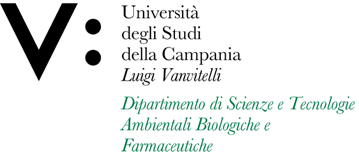Francesco PARRILLO
Insegnamento di IMPIANTI DI TRATTAMENTO DI BIOWASTE
Corso di laurea in SCIENZE AGRARIE E FORESTALI
SSD: ING-IND/25
CFU: 2,00
ORE PER UNITÀ DIDATTICA: 16,00
Periodo di Erogazione: Annualità Singola
Italiano
| Lingua di insegnamento | ITALIANO |
| Contenuti | Definizione di biomasse derivate da rifiuti, biowaste. Dopo un primo inquadramento normativo in Italia e in Europa, il corso affronterà le principali tecnologie attualmente in uso per il recupero e la valorizzazione dei biowaste. |
| Testi di riferimento | Il materiale sarà fornito durante il corso e sarà reso disponibile sottoforma di dispense distribuite a lezione |
| Obiettivi formativi | L’obiettivo del corso è fornire un’introduzione esaustiva sull’attuale gestione dei biowaste, sugli aspetti normativi che interessano la loro gestione e sulle tecnologie attualmente in uso e in via di sviluppo per la valorizzazione di questa risorsa. |
| Prerequisiti | Nozioni di base sui processi chimici e biologici |
| Metodologie didattiche | Lezioni frontali |
| Metodi di valutazione | Prova orale |
| Altre informazioni | n.a. |
| Programma del corso | 1. Introduzione alla gestione dei biowaste. I biowaste in Italia e in Europa e i principali aspetti normativi. |
English
| Teaching language | Italian |
| Contents | Definition of biomass derived from waste, biowaste. The course, after an initial regulatory framework in Italy and in Europe, will address the main technologies currently used for the recovery and valorisation of biowaste. |
| Textbook and course materials | The material will be provided during the course and will be made available in the form of pdf slides distributed in class |
| Course objectives | The course aims to provide an exhaustive introduction to the current management of the biowaste, the regulatory aspects and the technologies currently used and under development for the valorisation of this resource. |
| Prerequisites | Basic knowledge of chemical and biological processes |
| Teaching methods | Traditional lectures |
| Evaluation methods | Oral discussion |
| Other information | n.a. |
| Course Syllabus | 1. Introduction to biowaste management and the main regulatory aspects in Italy and in Europe. |








